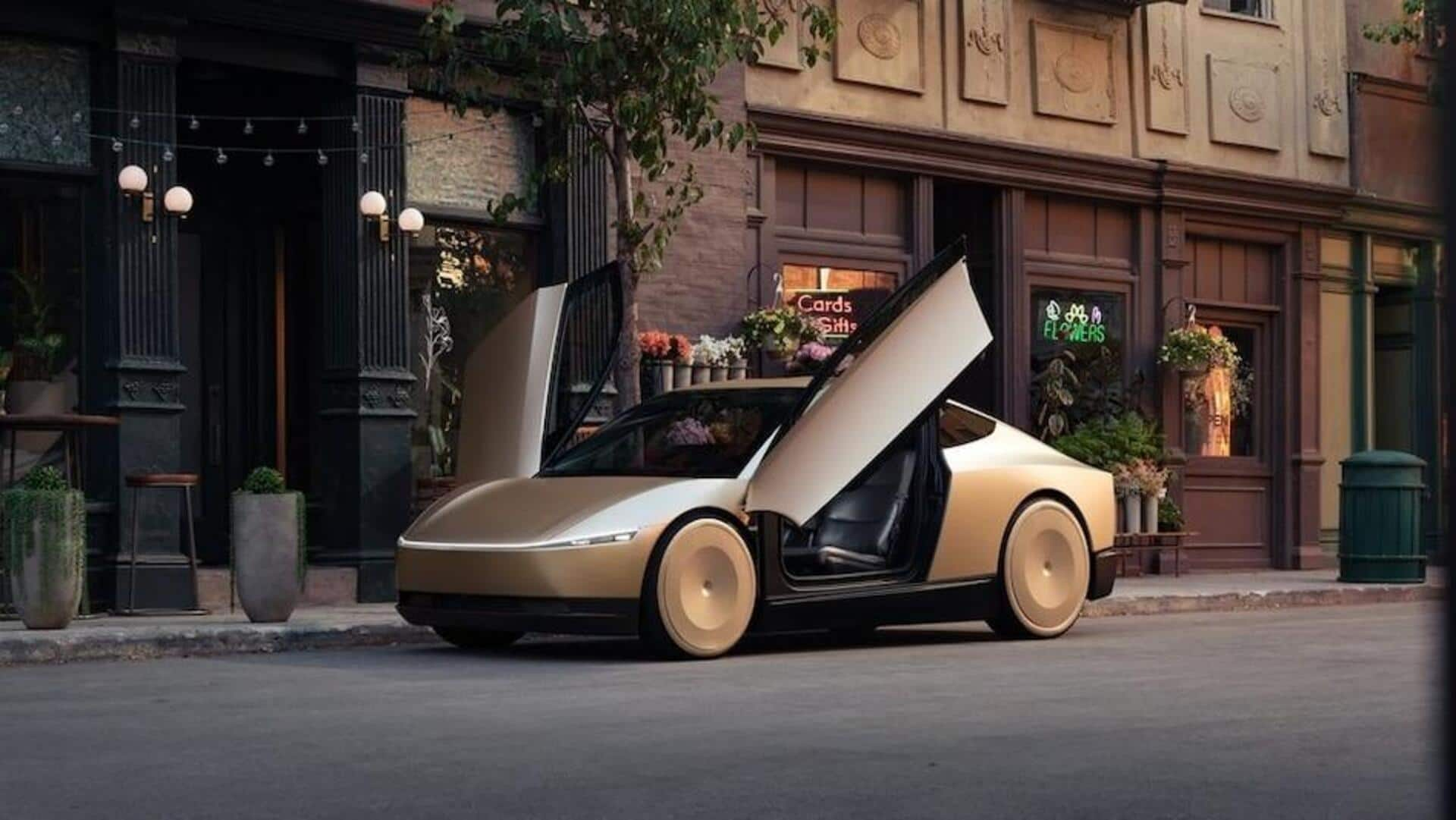
Tesla shares plunge 6% despite mind-blowing Cybercab robotaxi reveal
What's the story
Tesla's shares plunged 5.8% in premarket trading on Friday after the company's much-awaited robotaxi unveiling. The event, held at Warner Bros. Discovery studio under the theme "We, Robot," saw CEO Elon Musk unveiling the Cybercab car. The futuristic vehicle is a compact, streamlined version of Tesla's Cybertruck, designed to operate without human intervention. However, the reveal failed to generate the level of excitement anticipated by Wall Street, leading to a pre-market stock price drop for the EV maker.
Vehicle details
Cybercab: A glimpse into Tesla's autonomous future
The Cybercab, a low-slung two-seater, is unique in its design as it doesn't have traditional driving controls like steering wheels or pedals. Musk envisions this vehicle to be fully self-driving upon its launch and will recharge wirlessly thanks to inductive charging. However, he didn't give any specific information about where these cars would be manufactured. He did assure potential buyers that the price tag for a Tesla Cybercab would be under $30,000.
Investor response
Tesla's FSD plans and market reaction
Musk also talked about plans for Tesla's Full Self-Driving (FSD) system, saying an "unsupervised FSD" would be operational in Texas and California next year. The advanced driver assistance system will be offered for the company's Model 3 and Model Y electric vehicles. However, the market reaction to these announcements was not so great, with Barclays analysts noting a lack of near-term opportunities highlighted by Tesla at the event.
Criticisms
Analysts express disappointment over Tesla's event
Analysts from Piper Sandler echoed Barclays's sentiments, saying "most trading-oriented firms will be underwhelmed by the robotaxi unveiling." They also predicted a potential sell-off of Tesla stock in the coming weeks. Morgan Stanley analysts criticized Musk for not effectively presenting Tesla as an AI company during the event, pointing out his failure to provide details on improvements to Tesla's FSD system or address rumors about a partnership with xAI, his AI company.
Market outlook
Regulatory challenges and competition in self-driving sector
The mass adoption of self-driving cars on public roads is still years away, owing to regulatory concerns over safety features. Google's Waymo is one of the few companies to have successfully launched a robotaxi service to the general public. However, Tesla's ambitious plans could hit roadblocks as existing Teslas may not have the required hardware for full self-driving capabilities. Plus, Cybercab's design without steering wheels or pedals could potentially violate federal vehicle safety laws.